iKillers: 10 Biggest Threats Facing Apple

Introduction
Apple recently achieved a milestone some may have thought unthinkable a decade ago. Its valuation surpassed $620 billion, making Apple the most valued company in history. And this is before the hotly anticipated iPhone 5 and rumored iPad Mini debut. Is there anything that can knock Apple off its pedestal? Not any one thing. But there is a combination of competitors and internal challenges that could derail this juggernaut.
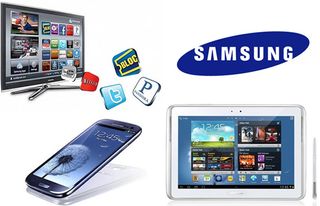
1. Samsung: Innovating Faster Than Google
Other than the huge legal clash over design, it's easy to see why Cupertino is keeping a close eye on Samsung. The South Korean powerhouse is selling more smartphones than Apple, with 45.6 million units shipped in Q2 compared with about 29 million iPhones. What's really scary is that Samsung is innovating faster than Google itself, from pen input on the Galaxy Note phone and Galaxy Note 10.1 tablet to unique features like Buddy Photo Share on the Galaxy S III. The proof is in the pudding: 10 million sold in less than two months. Samsung also has a huge start in smart TVs. Add in a growing content ecosystem and you have lots of reasons for Tim Cook to watch his back.
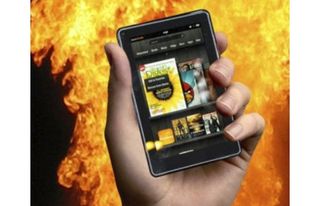
2. Amazon Kindle Fire 2 and Kindle Phone
Don't think for a second that Amazon is going to let the rumored iPad Mini and Google Nexus 7 hog the small- tablet spotlight. After all, Amazon was first to market with a $199 device, with the Kindle Fire gobbling up more than half of the Android tablet market share before sales fizzled. Now here comes the sequel, which promises to beef up on features while continuing to leverage Amazon's vast array of content. Apps, books, magazines, movies, music, games — Amazon has it all. Meanwhile, Amazon looks like it's gearing up for a smartphone launch, having recently hired two Windows Phone managers and a former hardware developer from Apple and Nokia.
More:6 Things to Expect From the Amazon Phone
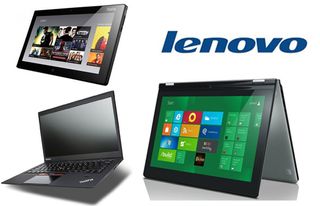
3. Lenovo’s on a Roll
Don't look now, but Lenovo is about to overtake HP to become the No. 1 PC maker in the world. The sleek and long-lasting ThinkPad X1 Carbon is not only the best Ultrabook yet, it's my favorite MacBook Air alternative. Meanwhile, Lenovo has arguably the best one-two punch in the PC-plus era with the upcoming ThinkPad Tablet 2 and IdeaPad Yoga. Lenovo's biggest not-so-secret weapon? It's home-field advantage in China. The company reached a record market share there of 35 percent last quarter.
More: ThinkPad Tablet 2 Hands-on Video

4. Apple's Audience is Graying
In a recent brand study conducted by Millard Brown, Apple was worth more than McDonald's and Coca-Cola combined. You'd have to throw in Disney too to match Apple's shine. Then again, there are signs that the company may be losing its hip factor. Another recent survey by YouGov BrandIndex found that Apple's appeal among the 18-to-34 set has dipped. It's certainly plausible that more parents and grandparents snatching up the iPhone and iPad will drive Generation Z to seek alternatives (kind of like the Facebook backlash), so it will be up to Apple to retain its edginess while courting the masses.
Stay in the know with Laptop Mag
Get our in-depth reviews, helpful tips, great deals, and the biggest news stories delivered to your inbox.
More:Best & Worst Notebook Brands

5. Google Project Glass
At this year's D: All Things Digital Conference I asked Tim Cook what he thought of wearable computing. He said "there are some cool things that can be done" but noted the real question was whether "it can change somebody's behavior." Google's Project Glass will do just that. This wearable heads-up display could literally re-define mobile computing, putting the power of a smartphone in your face with a sleek and wearable design.Plus, because Project Glass has a built-in camera, you'll be able to live-stream Junior's first steps. Google will make a developer kit called Explorer Edition available early next year for $1,500, and a lower- cost consumer model should follow in 2014.
More:Why Google’s Project Glass is Bigger Than the iPhone
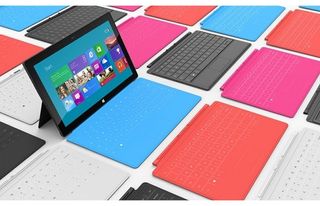
6. Microsoft Surface
The Surface is the most buzz-worthy Windows 8 device because for the first time in its 40-year history Microsoft is making its own PC. I call it the iPad Pro, because this slate sports a first-of-its-kind Touch Cover with an integrated keyboard. The Surface will come in two flavors, a cheaper model running Windows RT (ARM) and a higher-end version running Windows 8 powered by an Intel x86 CPU. There are even rumors that the Surface could cost as little as $199. At a time the iPad is invading the enterprise, the Surface could be just the device to make IT managers — and users — think twice. Microsoft apparently is making 3 million units in anticipation of a major launch.
More:Microsoft Surface Hands-on: The Future of Windows is Here
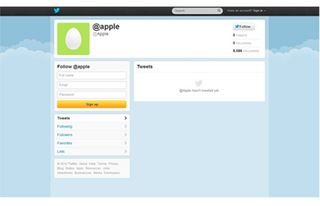
7. Apple’s Not Social Enough
Does anyone else find it ironic that Apple is making a huge deal about adding Facebook integration to iOS 6 and Mountain Lion and that it doesn’t have an official presence on the social network? Same thing goes for Twitter. Given that the whole Ping music social network petered out, I think it’s time for Apple to get more engaged. (Yes, Google Plus would be awkward so I’ll give the company a pass there.) I’m not saying Apple should do this just to be hip; many of its competitors are using social networks as a way to reach new customers and also provide support when things go wrong. Apple needs to be where it’s customers are spending the most time.
More: How to Use Twitter in Mountain Lion
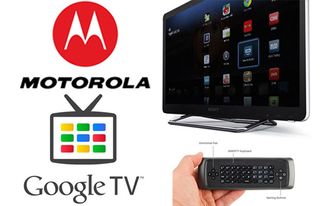
8. Googorola in the Living Room
There’s no question that Google TV has been a flop, and the overpriced and now postponed Nexus Q is further proof that Google needs all the help it can get in home entertainment. Although there have been reports that Google may be selling Motorola’s set-top box unit, that would be a huge mistake. It’s in Google’s best interest to ensure that the next generation of cable boxes is powered by Android instead of iOS, and Motorola is that Trojan horse. If Google is smart, it will also consider partnering with Comcast, Cablevision and others to make a Nexus- branded TV with Motorola’s cable box guts.
More: Top 10 Gadgets for Apple Haters
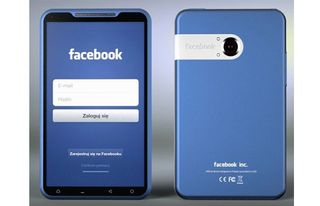
9. Facebook Hijacking Phones
Don’t laugh. I know the Facebook Phone has been rumored for ages. Mark Zuckerberg himself shot down the idea, saying in July that building his own phone doesn’t “make much sense” for the company. However, that wouldn’t prevent someone like HTC from building a Facebook phone, reportedly on tap for mid-2013. Even if an actual piece of hardware doesn’t materialize, Facebook can’t afford to be a mere sharing button on iOS and Android. More than 543 million users access the service from mobile devices, and the network is under enormous pressure to monetize this activity. Now that Facebook has sped up its sluggish app it will likely become much more of a platform within a platform on iOS, stealing precious mobile ad revenue.
More: 26 Ultiimate Facebook Tips
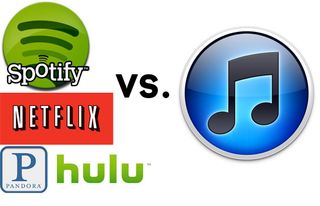
10. Spotify, Netflix, Hulu and Anything That’s Not iTunes
I can’t remember the last time I used iTunes for anything other than apps. And why would I buy content a la carte when I can get all-you-can-eat music and videos for free (Pandora, Slacker, YouTube) or via an easier-to-use subscription service like Spotify or Netflix? Apple makes all of these apps available on iOS devices, but it needs to overhaul iTunes before it becomes an afterthought for a lot more people. Offering subscriptions would be a great start. And the monthly fee would not just include music but also video and possibly magazines and newspapers, giving consumers different pricing tiers for how much they want to consume.
More: Portable Bluetooth Speakers Reviewed: Palm Sized, Big Sound

